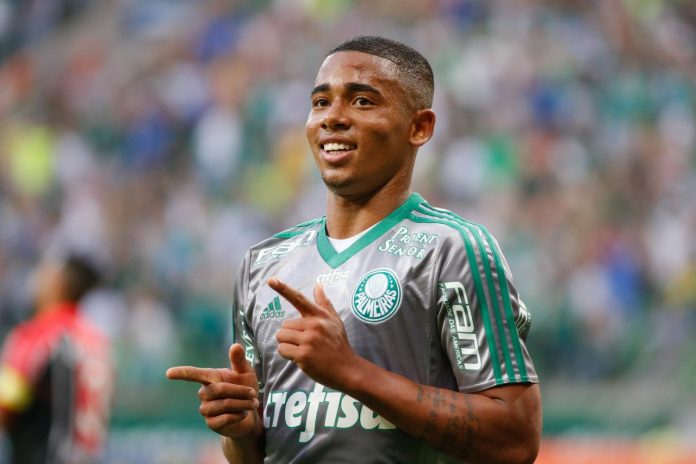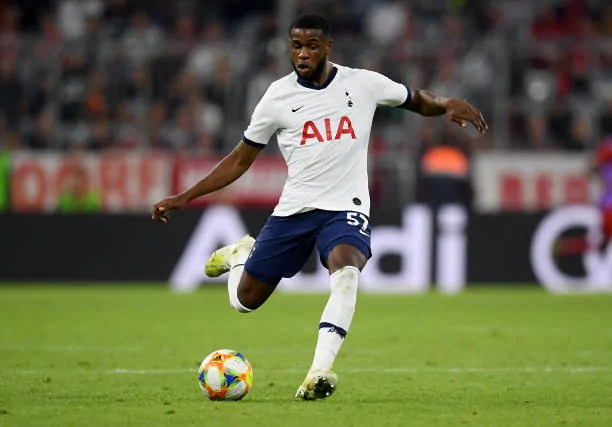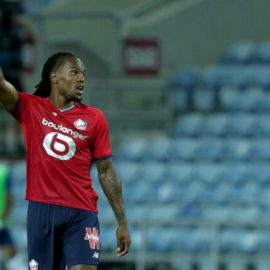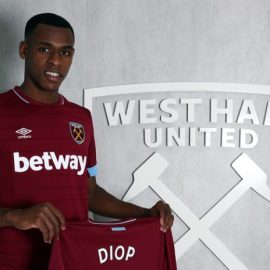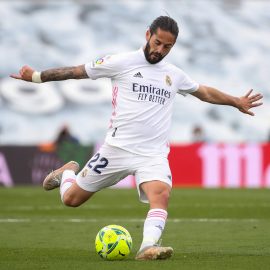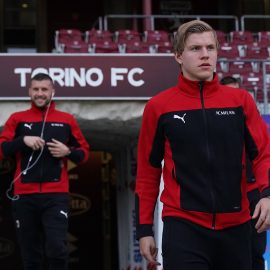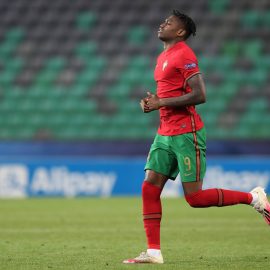Gabriel Jesus, following in the footsteps of Neymar and Oscar, is another Brazilian wonderkid who has put every big club in Europe on alert with his immense rise in stature.
Palmeiras’ young hot-shot Gabriel Jesus’ incredible performances both at club and international levels has sparked the interest of a host of European clubs including Arsenal, Juventus, Benfica and Roma among others.
CalcioMercato24 ran a report back in December that an agreement had been reached between Palmeiras and Arsenal for a January signing but a move never materialised.
Dubbed as the ‘new Neymar’ only time will tell if his trajectory leads him towards the stardom of the current Barcelona hit-man or plummets him into the dark abyss that harbours the souls of former such wonder-kids like Kerrison, Kerlon and Kleberson.
While hoping that it wouldn’t come to that tragic conclusion, we take an in depth look at who this young star is that everyone is talking about.
Background
Born in Sao Paolo, Gabriel grew up in the favelas of Jardim Peri in the district of Cachoeirinha. Like any aspiring footballer, he started his footballing journey on the streets before joining amateur outfit Anhanguera. Gabriel joined the famed youth set up of Palmeiras in 2013 shortly after impressing for Anhanguera and scored a staggering 54 goals in just 48 appearances in his first year at the club.
The gifted young poacher then went on to score 37 goals in 22 games for the Verdāo in the U-17 Campeonato Paulista in 2014.
Gabriel signed his first professional contract with the club in 2015 and made his debut the same year but his long awaited arrival to the main stage could have been a year earlier. Palmeiras were fighting for their survival in the top flight in 2014 and despite the demand from fans that Gabriel be given an opportunity in the first team, the youngster didn’t make a single senior appearance under either one of Ricardo Gareca or Dorival Junior, both sacked from the club since then. This will ultimately prove to be the right decision in the long run as a relegation battle is never a suitable environment to blood a young player.
Instead, he was handed his debut in the Cameonato Paulista on 7th March in 2015, coming on as a 73rd minute substitute for Leandro Pereira in the 1-0 win over Bragantino.
Hailed as the best young talent to come out of the club’s youth set up in years, Gabriel was greeted by a thunderous roar of approval from the Palmeiras faithful.
He also took part in the Copa São Paulo Futebol Júnior U-20 tournament where he finished as the top scorer further emphasising his immense potential.
The Sao Paolo native made his first league start in the 2-2 home draw against Atletico Miniero. His first goal for Palmeiras came in the Copa do Brasil knock out round away against Agremiação Sportiva Arapiraquense, the only goal in a two legged tie.
Gabriel scored a brace against Cruzeiro in a 3-2 victory (5-3 in aggregate) helping his club reach the quarter finals of that tournament. His first league goals came just four days later against Joinville scoring the first and third goals in Palmeiras’ 3-2 victory. His first goal came after just 52 seconds.
The 19-year-old was presented the best newcomer award in the Brazilian top flight.
Gabriel helped the Brazil U-20 side reach the final of the FIFA U-20 World Cup in New Zealand before losing to Serbia.
Gabriel Jesus – Playing Style & Video
A quintessential modern day attacker, someone who can play anywhere across the front three in a 4-3-3 or a 4-2-3-1, Gabriel is an accurate specimen of a versatile forward also boasting the ability to play as a No.9.
The Brazil youth international has always been described as someone with a very low centre of gravity. His composure and finesse inside the box is excellent for someone of his age. But like most Brazilian attackers, his key attributes are his pace and trickery. Technically adept and brimming with imagination and creativity, it’s only a testament to the years spent playing barefoot on the streets on concrete pitches.
There is a pre-conceived notion prevalent among the vast multitudes of fans of European football that technical dexterity is a fundamentally exclusive result of sheer hard work and intricate training routines.
https://www.youtube.com/watch?v=qWBYIiHWe5E
Barcelona and Ajax train players aged just six or seven in the same model as their respective first teams, refining their talent for nearly a decade before the careful transition into the first team squad. Whereas in Brazil, kids play barefoot in the streets, on concrete pitches, and on virtually any surface available before signing for a professional club to further hone their abilities.
Perhaps that is why Gabriel is already an accomplished dribbler and with the right players around him to make those runs in and around the box, he can be lethal during counter attacks.
His direct approach and dynamic style has been highly praised by the youth team coaches at both Palmeiras and the Brazil national team set up.
Despite his seemingly slight demeanour, Gabriel is quite good at hold up play, something that is essential for any player hoping to move to a big club in Europe.
So far Gabriel has defied all myths concerning South American attackers’ work ethic on the defensive side of the game by showing a keen interest in tracking back and helping his team defend.
What They Say
Former Real Madrid and Barcelona and World Cup winner Ronaldo considers Gabriel to be one of the players with a very bright future ahead of him.
“I’m betting on two talents, they’re still developing but have a lot of quality. Gabriel Barbosa of Santos and Gabriel Jesus of Palmeiras are very young talents and haven’t even turned 20,” said the three time FIFA world player of the year.
“He will become a major player in Brazilian football, and also the Seleçāo, if they have patience. He is a boy who is easy to speak with and work with and who is different to the others in the question of training, always giving more than 100 per cent,” said Palmeiras U-17 coach Bruno Petri.
The fact that Palmeiras tied him down with a contract that runs till December 2019, the maximum contract length allowed for a player of his age, speaks volumes of the club’s faith in his abilities.
Add Sportslens to your Google News Feed!
